A Daily Activity Log is a record of how an individual spends their time on different activities within a specific period or day.
It records the type of activity being carried out and the start and completion time of each activity.
An activity log is a time management tool that helps monitor if a person is using their time appropriately for activities that are beneficial for their personal or professional goals. Other than monitoring, it can be helpful in allocating time to different duties and responsibilities throughout the week or day.
As a time allocating tool, an activity log ensures priority tasks or errands are given enough time and focused on over other less important errands. This is greatly beneficial to employees and employers in the workplace. Employees can use them to make sure they meet deadlines, and employers can track how their employees are utilizing the time allocated to them, which is important in monitoring performance and productivity.
These logs are also a great way of eliminating time wastage at work and in your personal life. By keeping track of what you are normally doing at different times of the day or week, you can identify how much time you spend scrolling your phone on Facebook versus doing valuable activities like reading.
Downloadable Templates
A daily activity log template is a fillable form that is used to document how much time is spent on different activities within a given period. Templates are readily accessible and convenient to use as users can create effective activity logs without creating them from scratch. Download such easy-to-use templates from below and start tracking your activities. The templates are free for download and can be personalized to suit your situation:
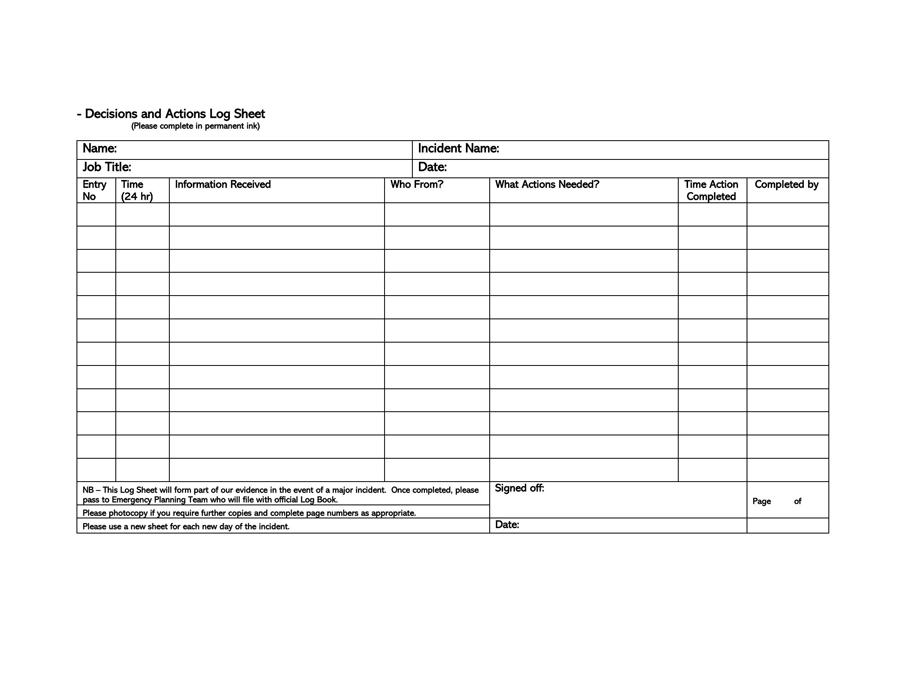
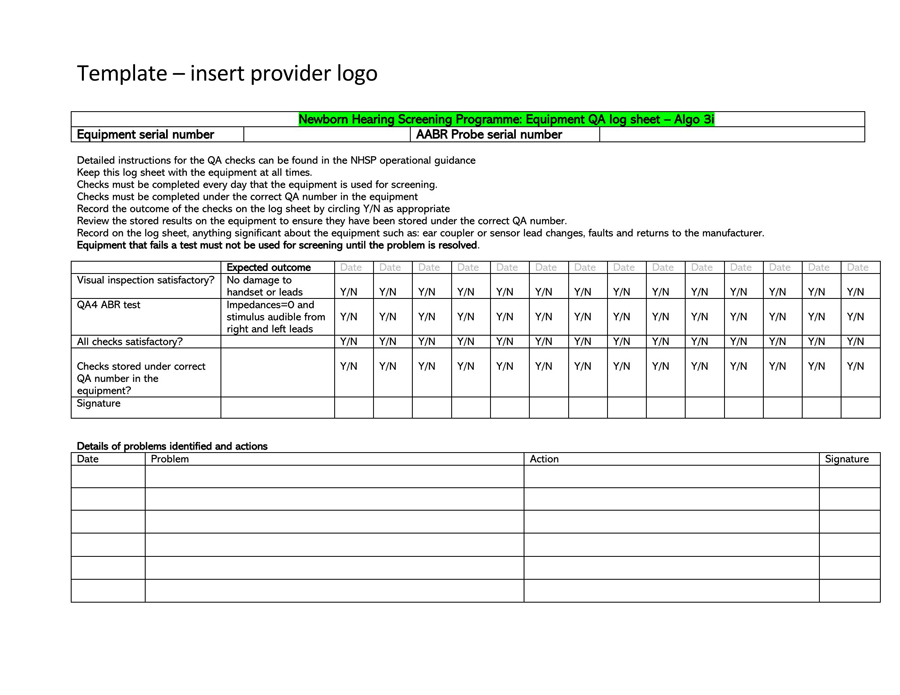
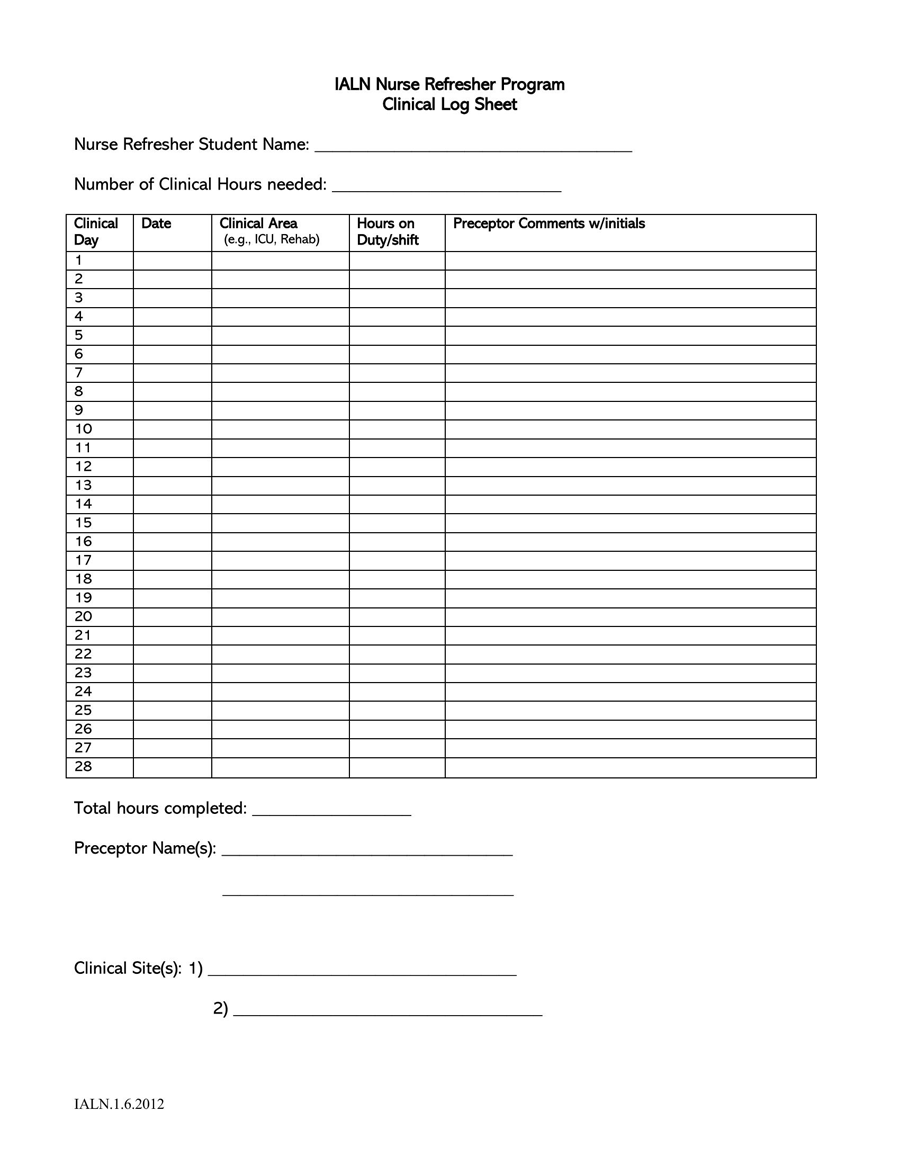
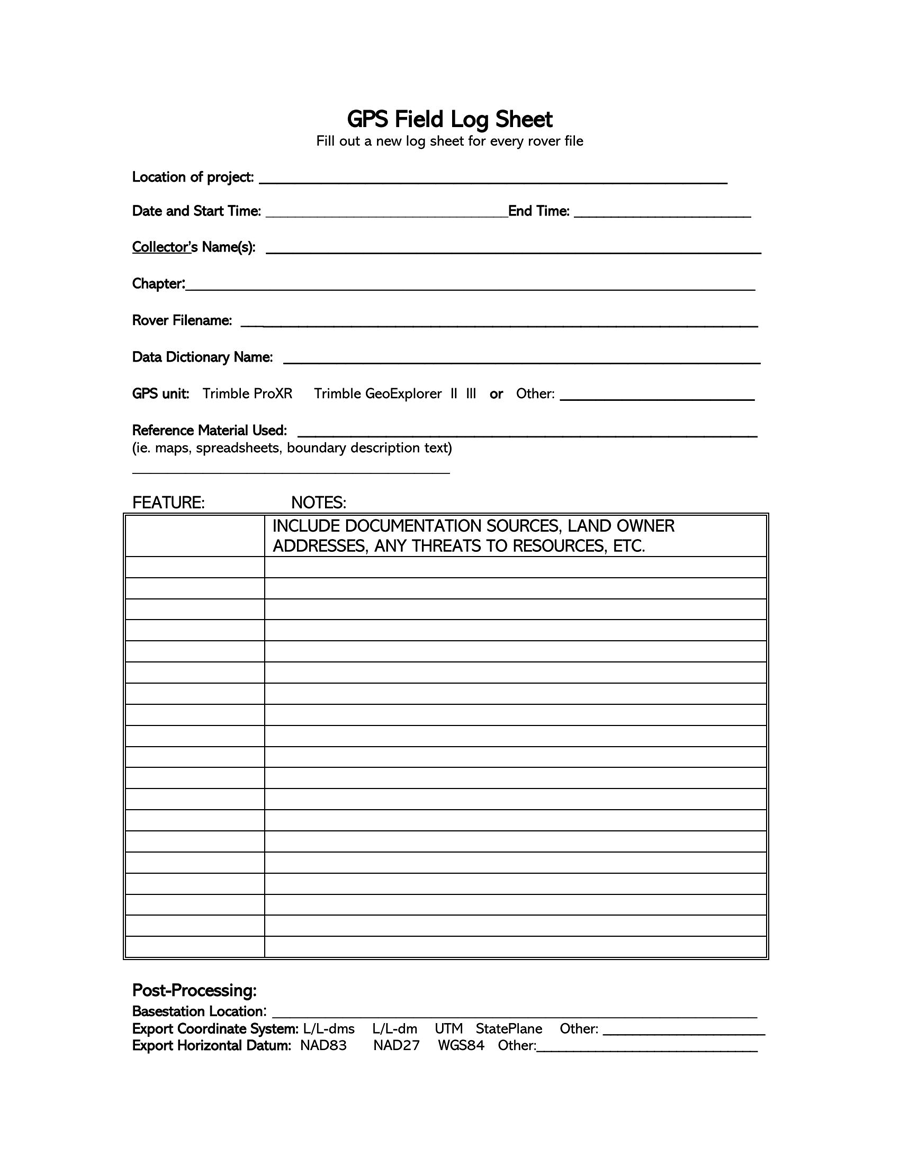
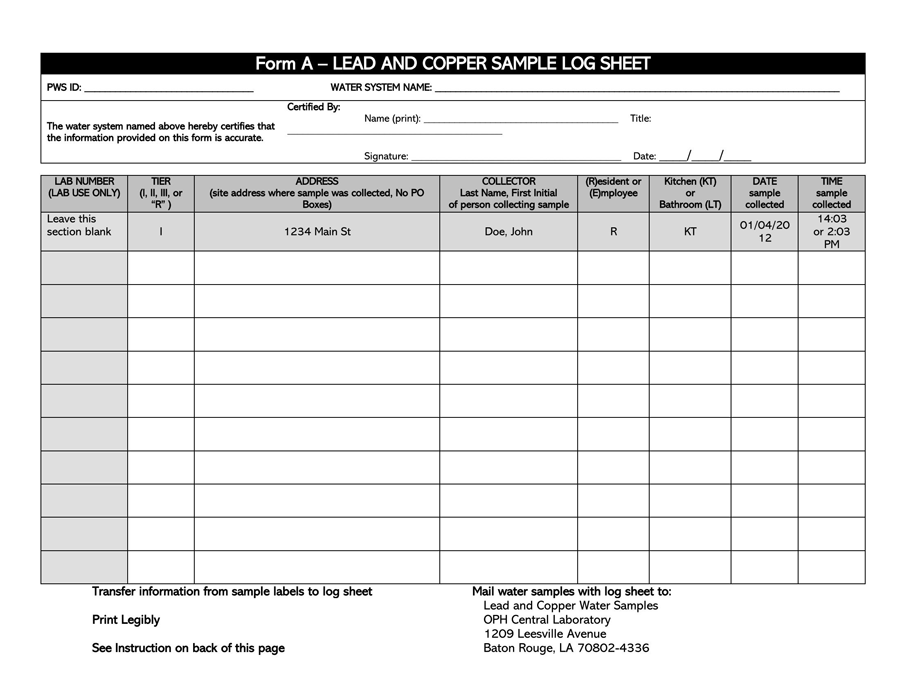
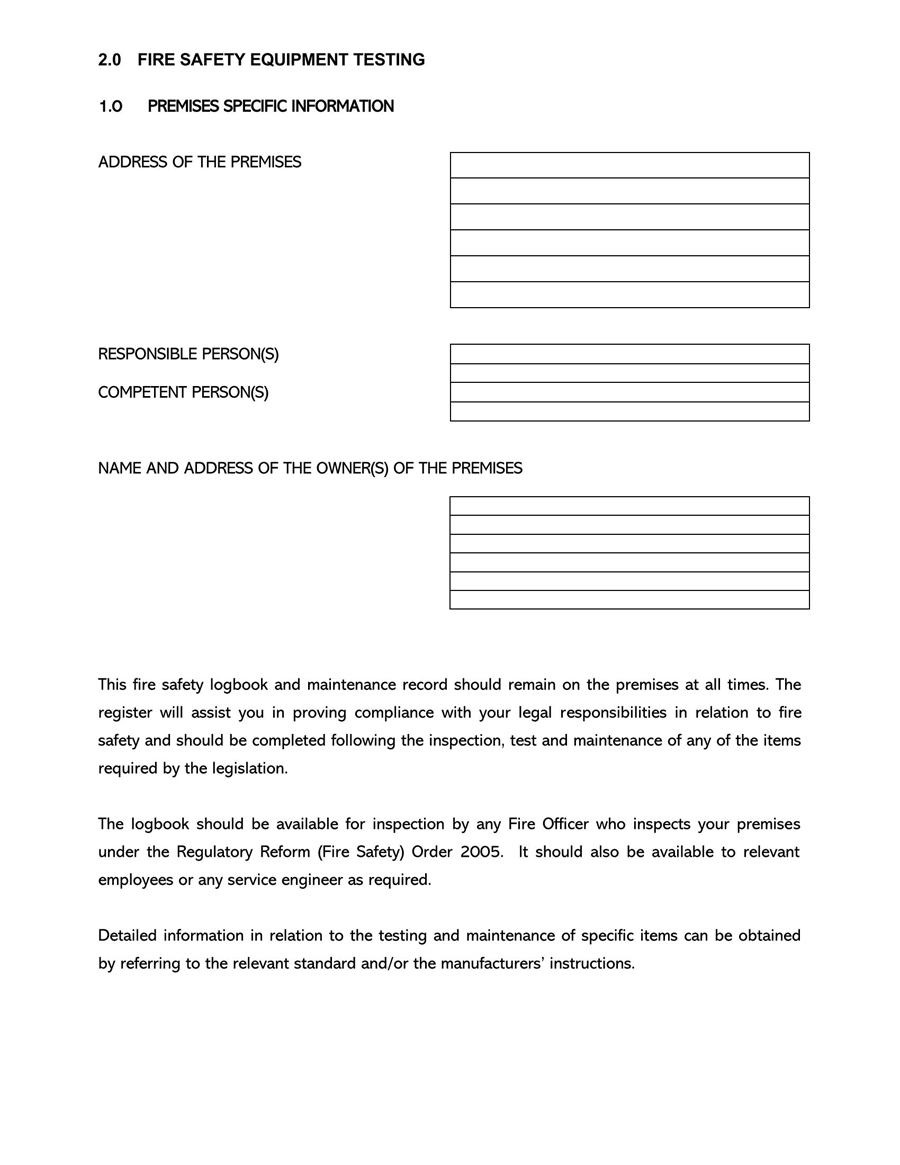
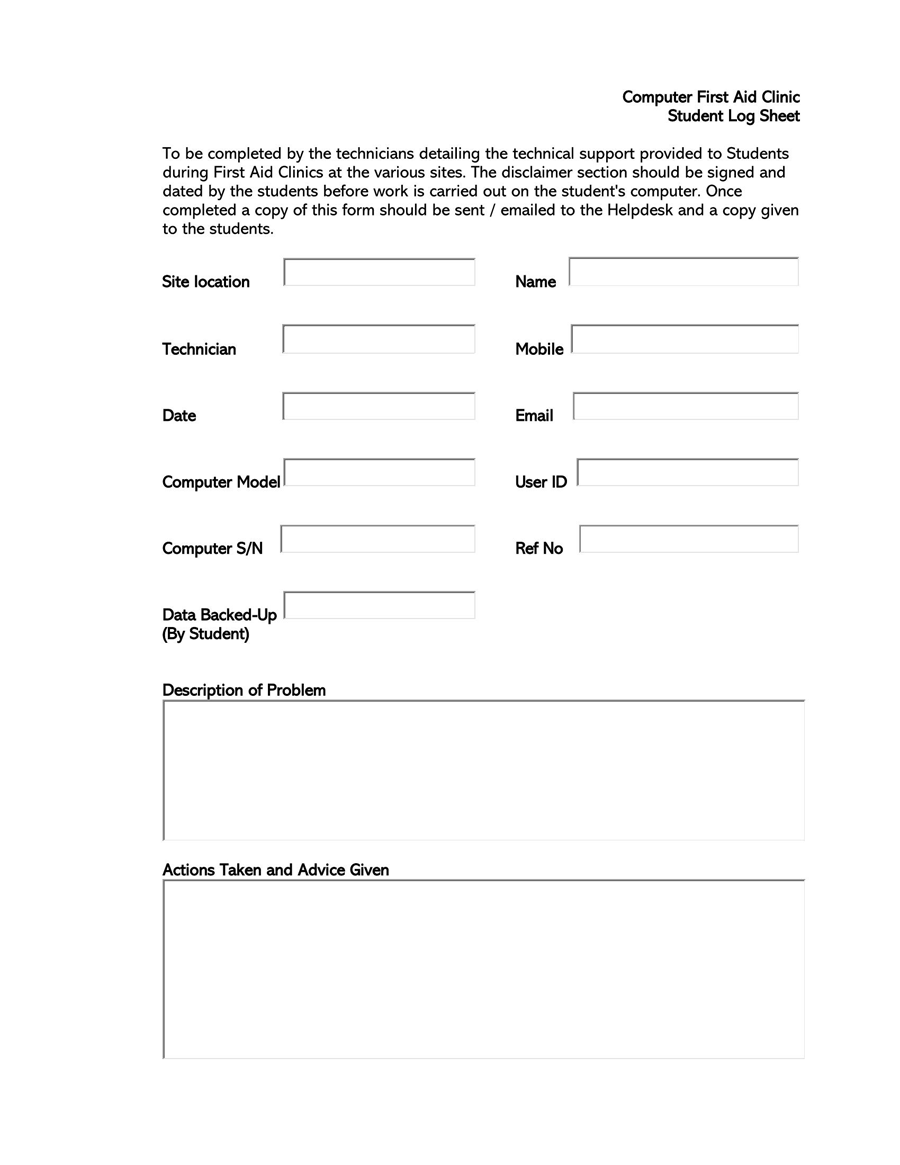
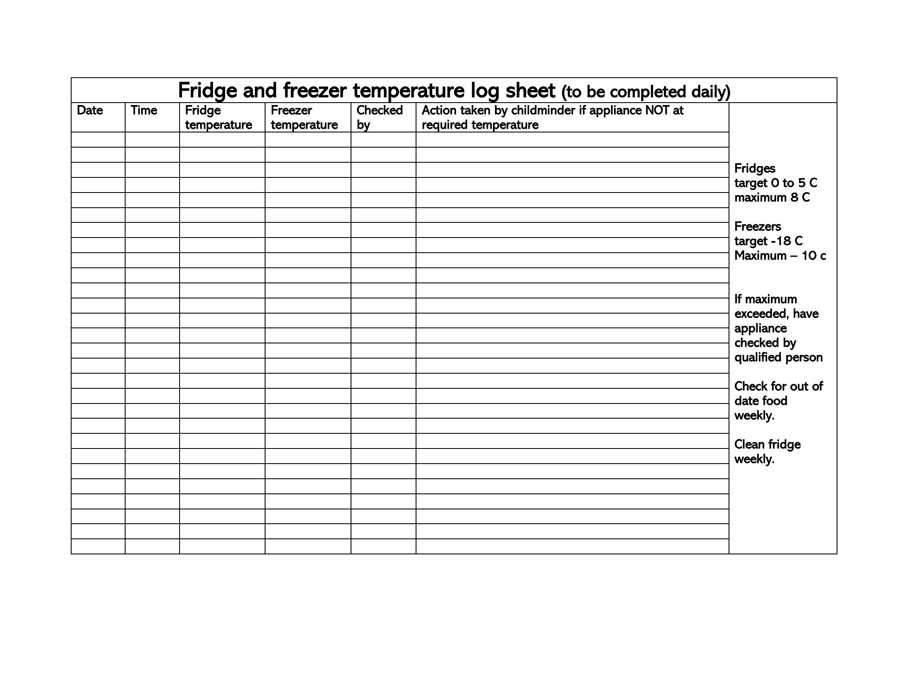
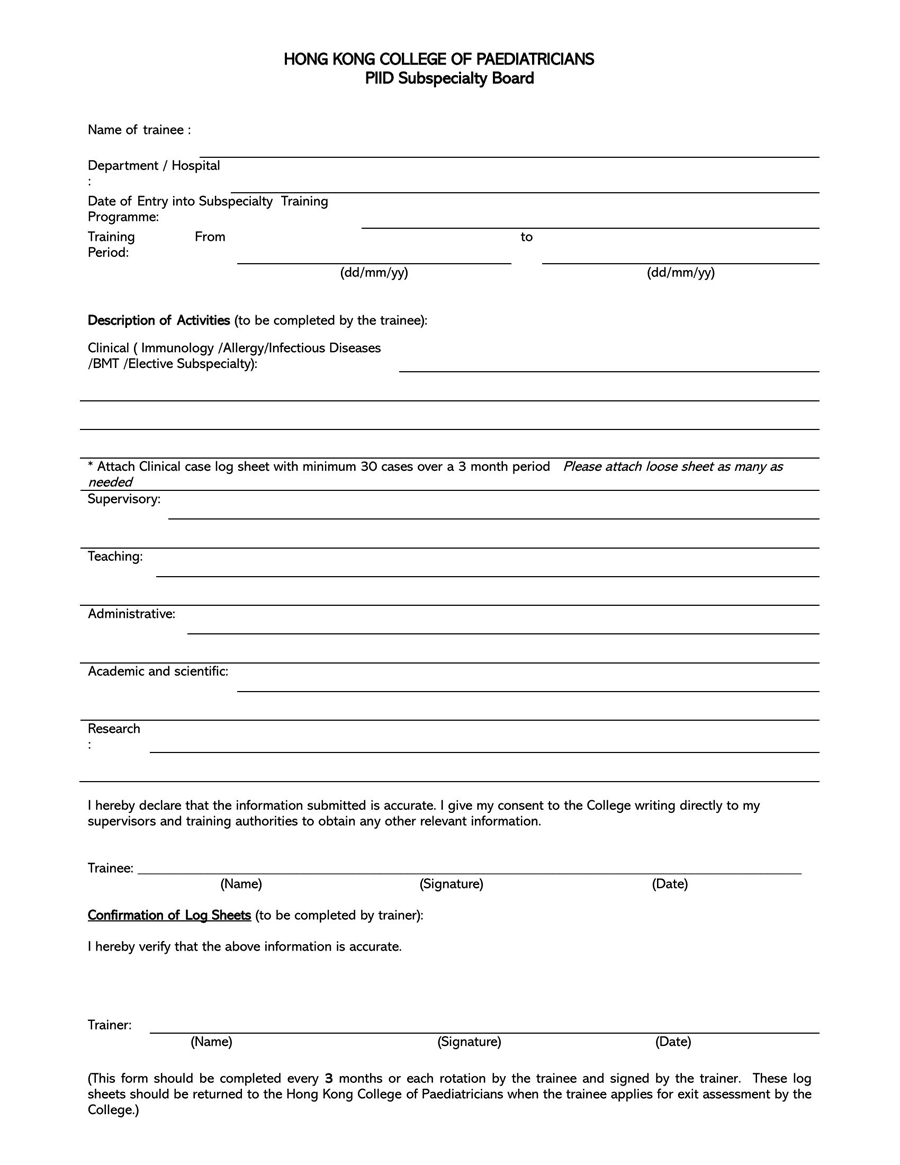
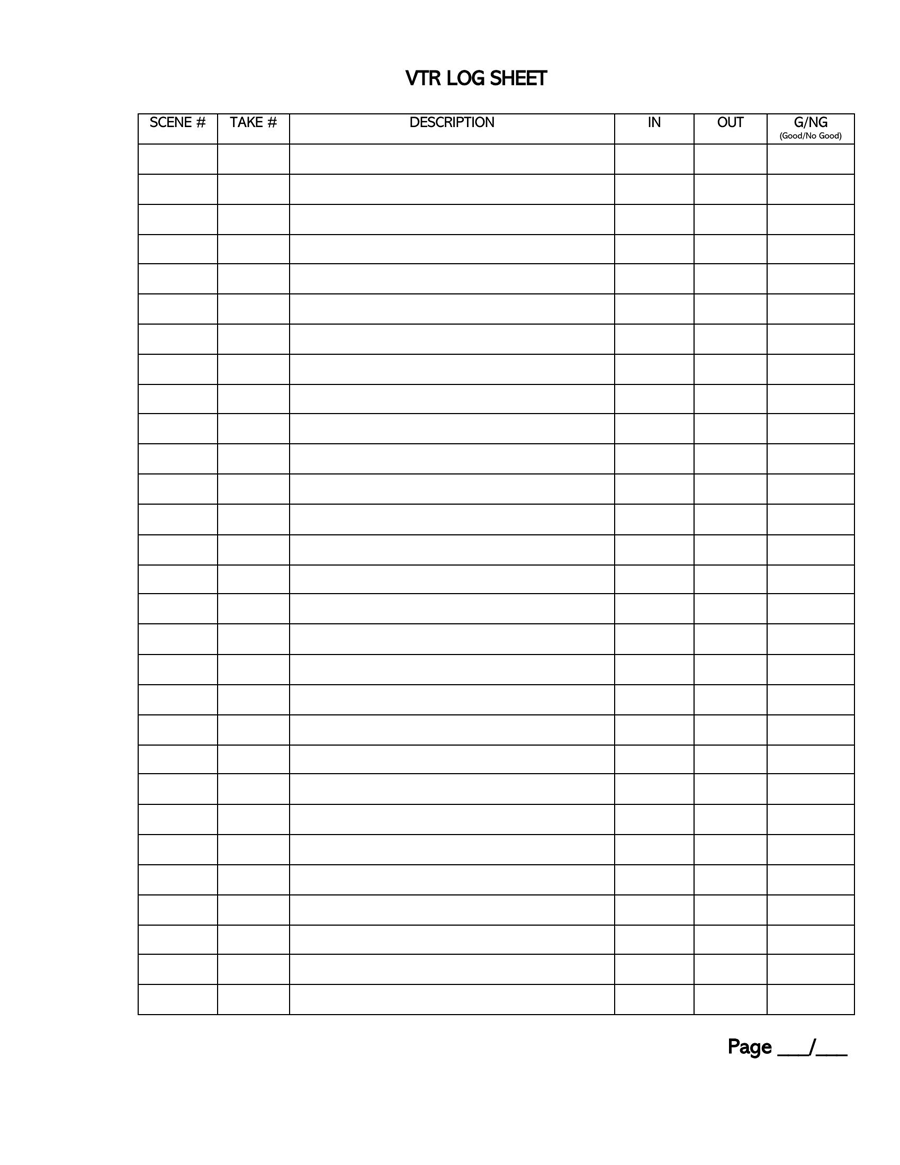
Who Can Benefit from an Activity Log and How?
Daily activity logs can be used in any scenario where you intend to record the activities you undertake within a specific period. This means they can be used to track activities at home, in the office, or to track activities performed by your staff.
The following are the basic elements of different activity logs and the ways they are beneficial to users:
An individual or an employee
Monitoring how you use your time is an effective way of managing your time and ensuring you complete errands successfully and on time. A daily activity log can be your assistant in ensuring you meet deadlines and dedicate time to important tasks at work and in your personal life.
How it will benefit?
An activity log comes with a wide range of benefits to individuals or employees who want to make better use of their time.
Below are some of the benefits that help make the use of these logs worthwhile:
- Tracks your progress: A daily activity log allows you to record details of day-to-day activities, which gives you better insight into your progress on different projects. You can note down how much is completed and what percentage is remaining.
- Helps improve time management: The activity logs improve your organization skills. While being organized can be a challenge to some people, they have proven to be effective in proper time management. Individuals/employees are able to see how their time is being consumed and by which activities. This way, they are able to meet deadlines and carry out their duties with fewer frustrations.
- Identifies weak areas: It is fairly common to discover that you are spending too much time on activities that do not add value to your work or help you achieve your goals, such as checking social media updates. With an activity log in place, individuals/employees are able to identify these activities and crop them out of their schedules leading to more productivity. This way, more time is directed to the important tasks.
Key elements to be included
While a daily log activity can be personalized to accommodate the type of information preferred by the user, there are basic components that appear in a standard activity log.
These elements include the following:
- Overall summary of the activity: A section should be provided to add descriptive information about the activity being recorded. Giving a description is important for capturing support details and making the activity log more informative.
- Date and time: Date and time are two important elements of an activity log. They basically form the foundation as it is with this category of information, users are able to see how well or poorly they are managing their time.
- Total activities: A section in the log should list all the activities undertaken throughout the day or week.
- Duration of activity: An activity log should also show the length of time taken to complete each activity registered. Individuals/employees can choose to use minutes, hours, or days depending on the situation.
- Activity status: An excellent activity log will also prompt users to input the status of each activity recorded. Activity status can be completed or incomplete. This helps you to determine which activities should be revisited at a later date.
- How I feel: Confirm if your daily activity log has a section for writing notes about how you feel or observations you made when carrying out the activity.
- Value of the activity: These logs also indicate the value of each activity done during the recording period. An activity can be high, medium, low, or no value. Recording this information helps you in planning which activities to prioritize or forego.
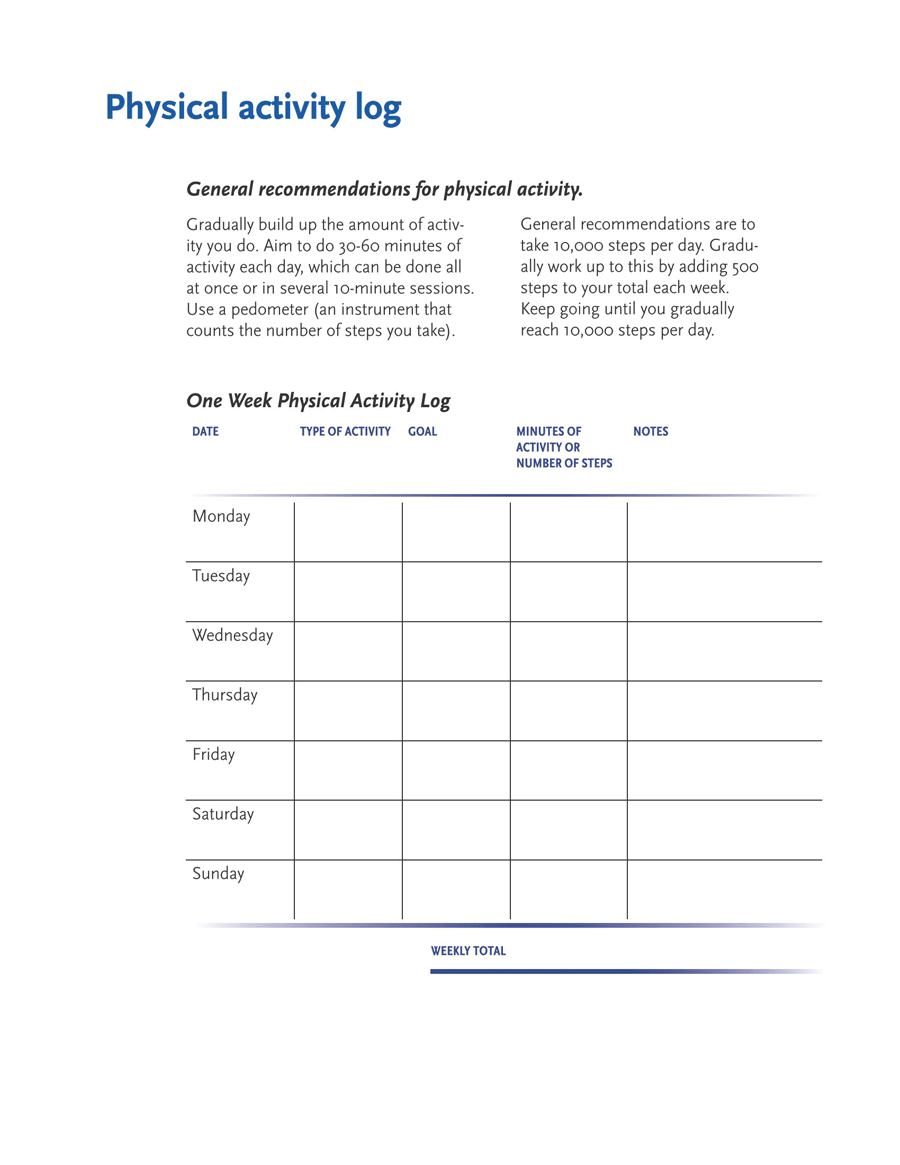
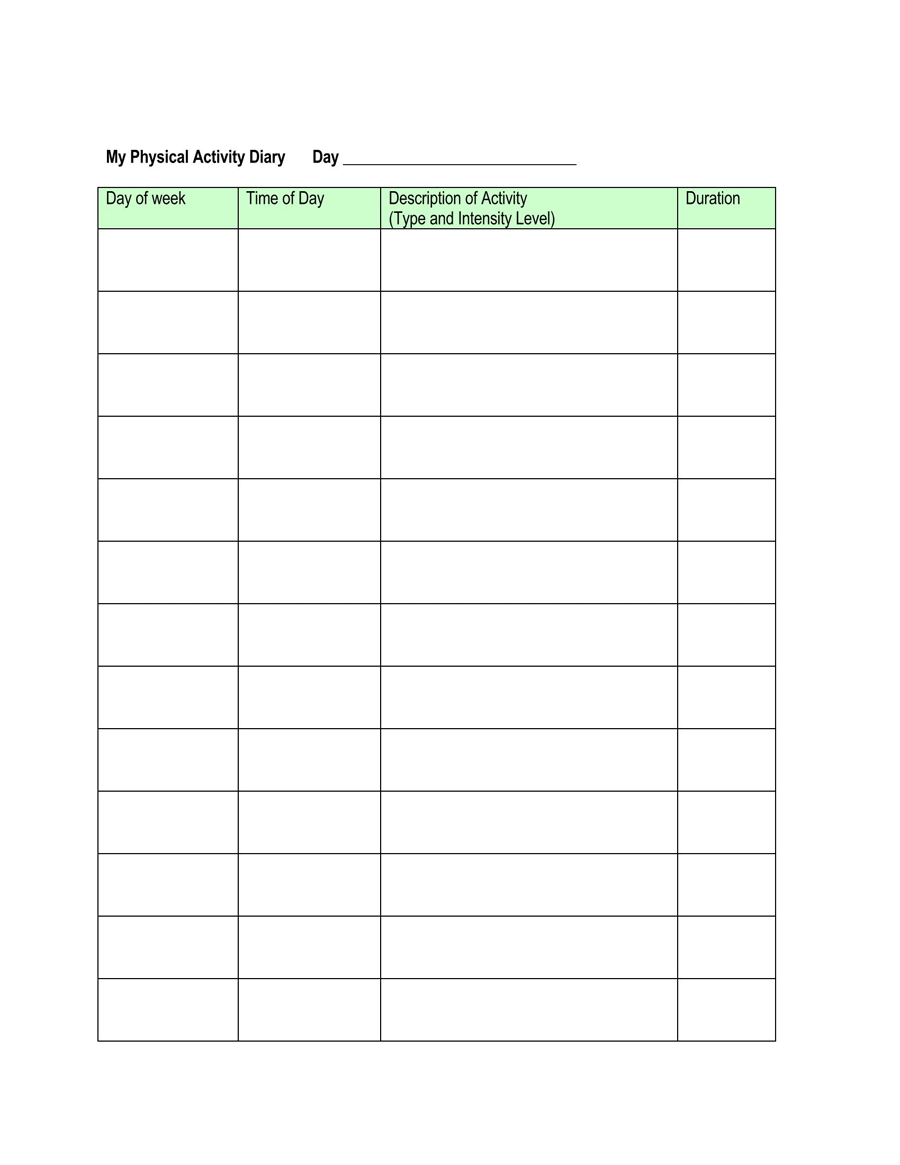
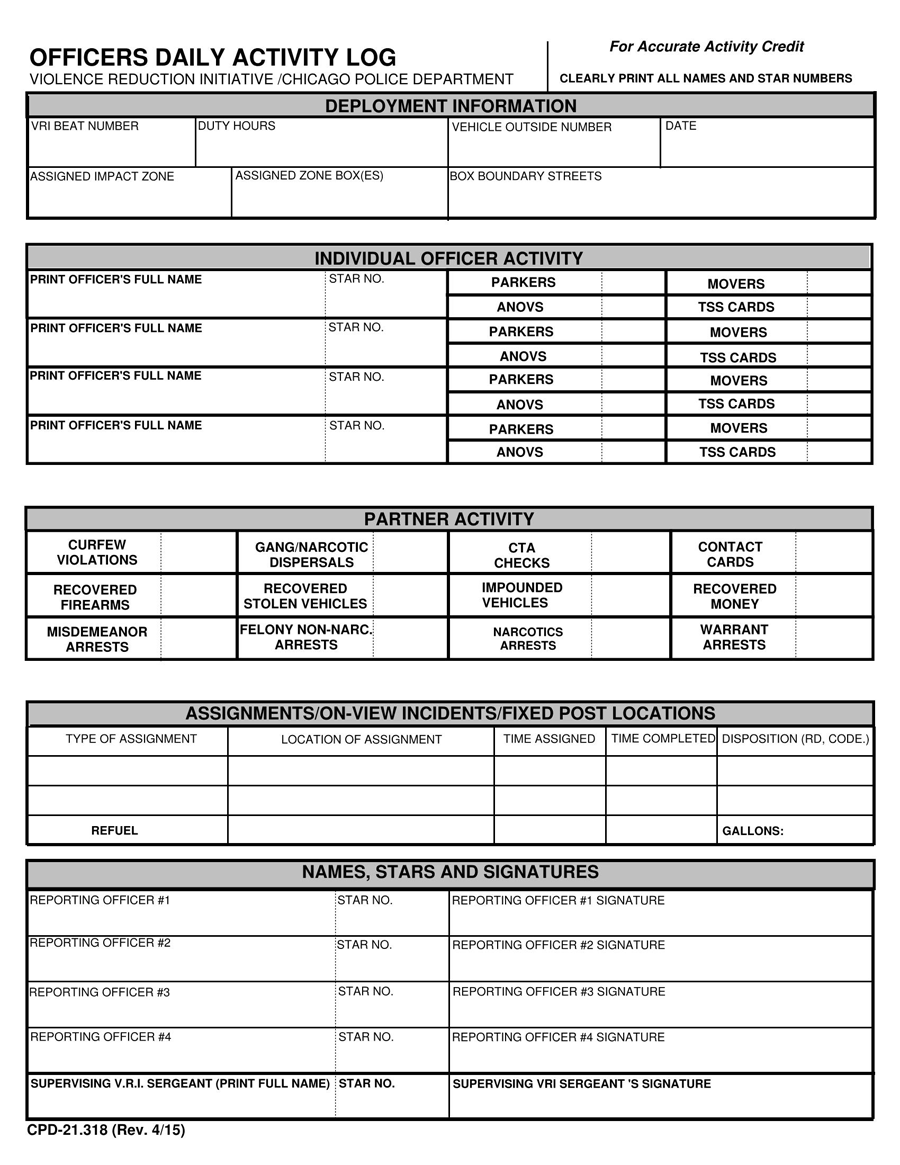
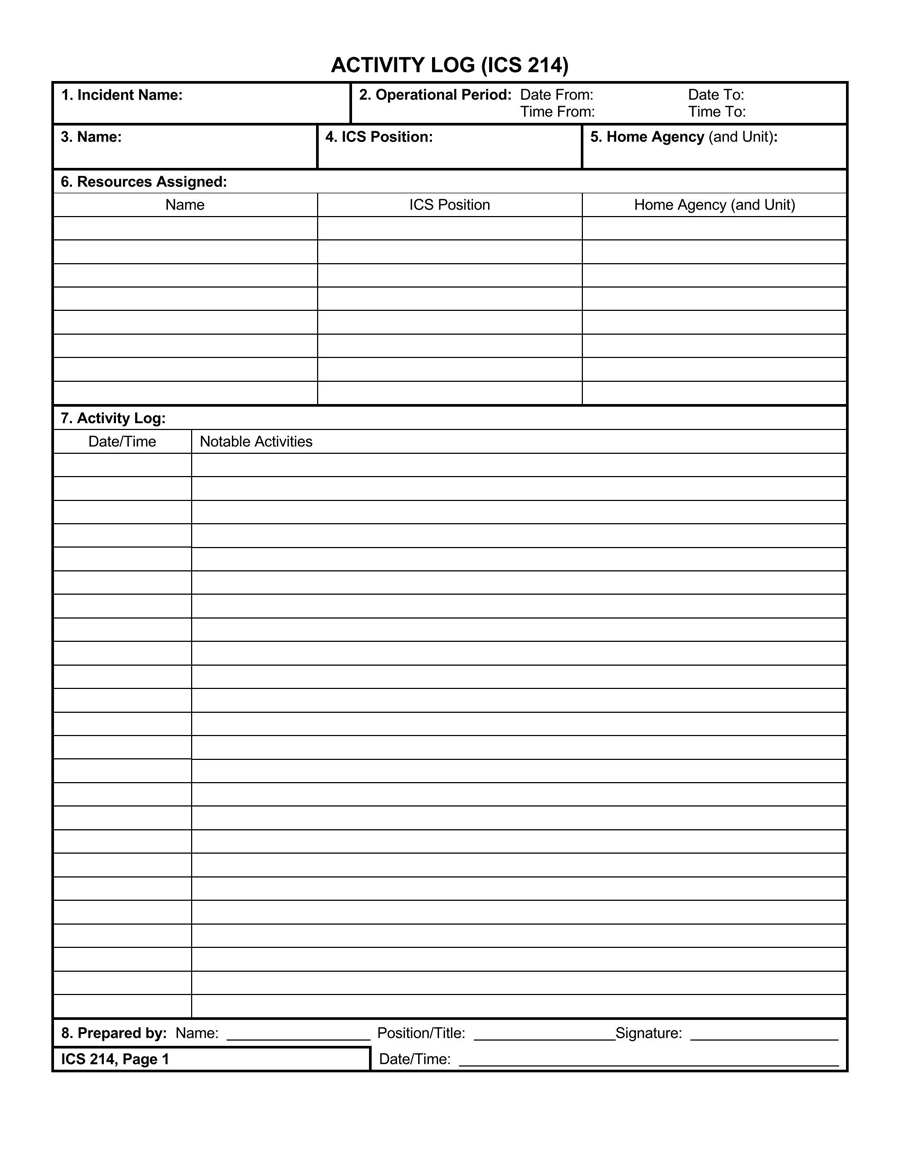
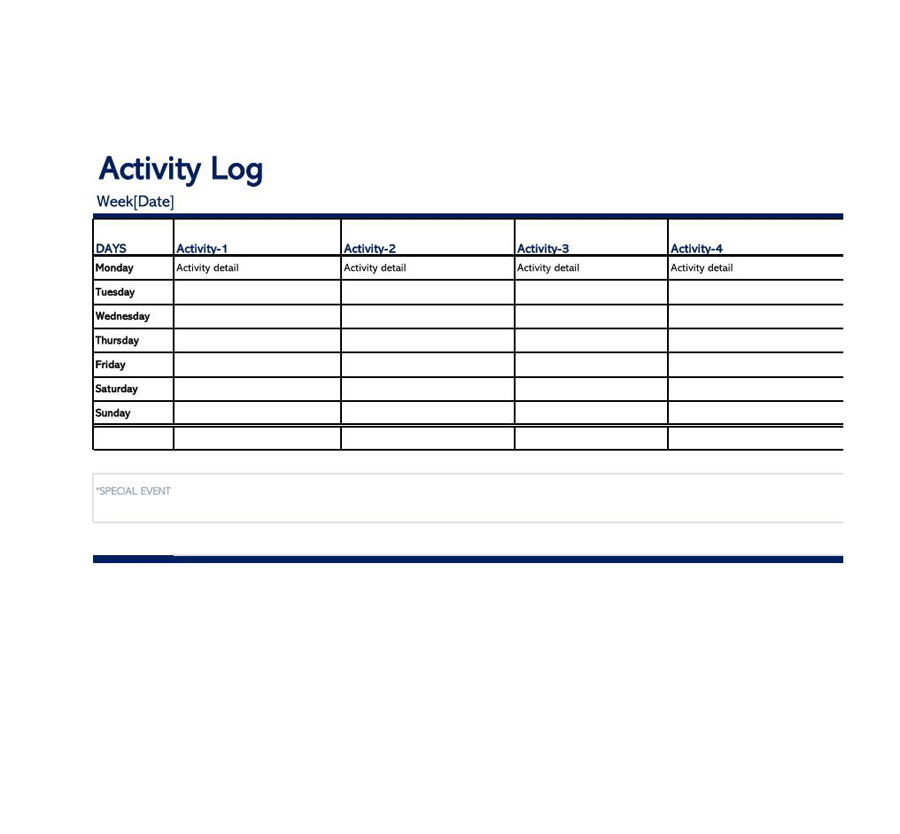
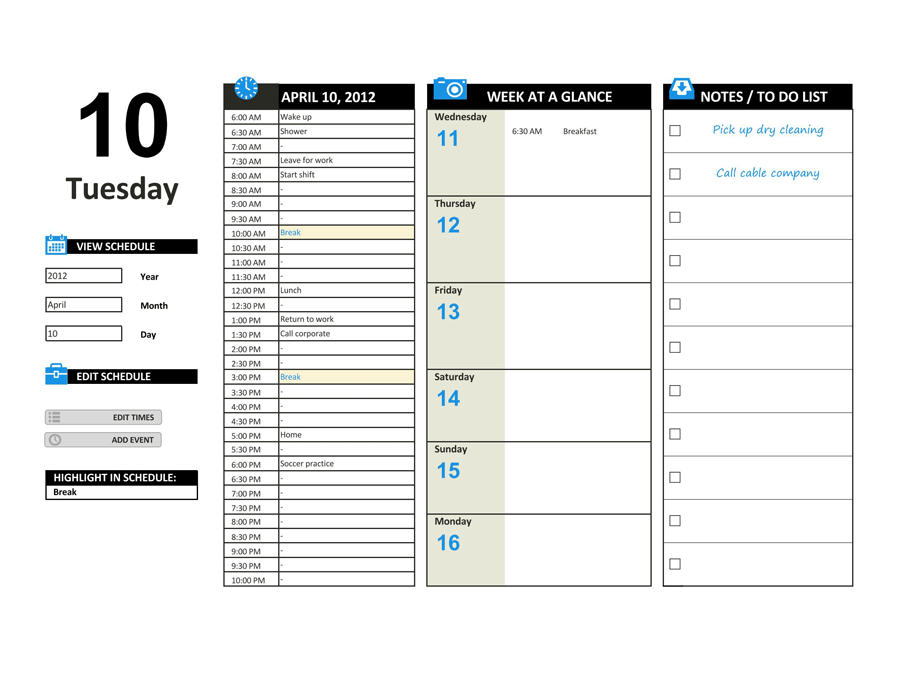
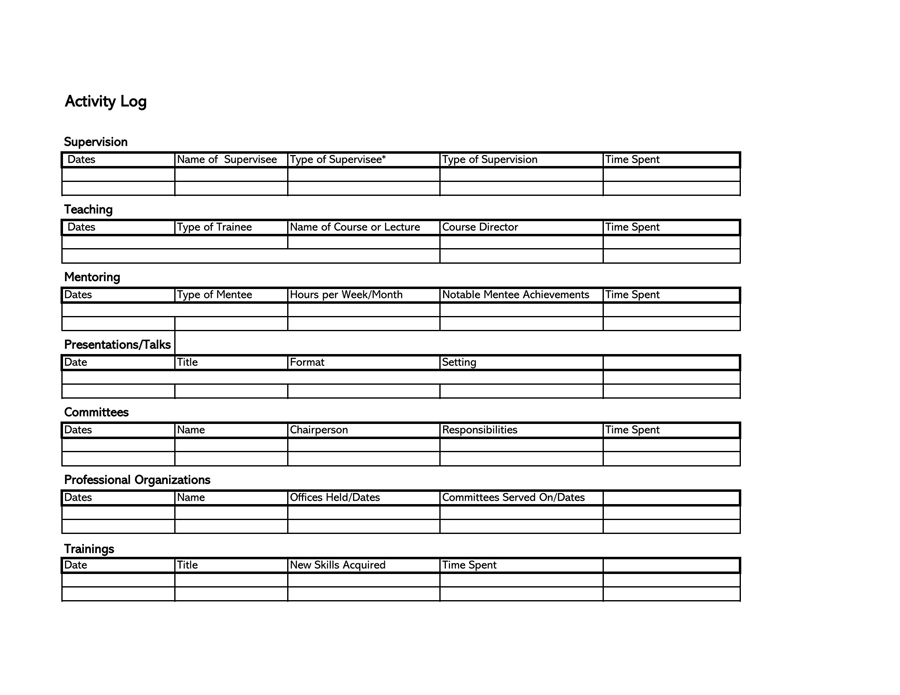
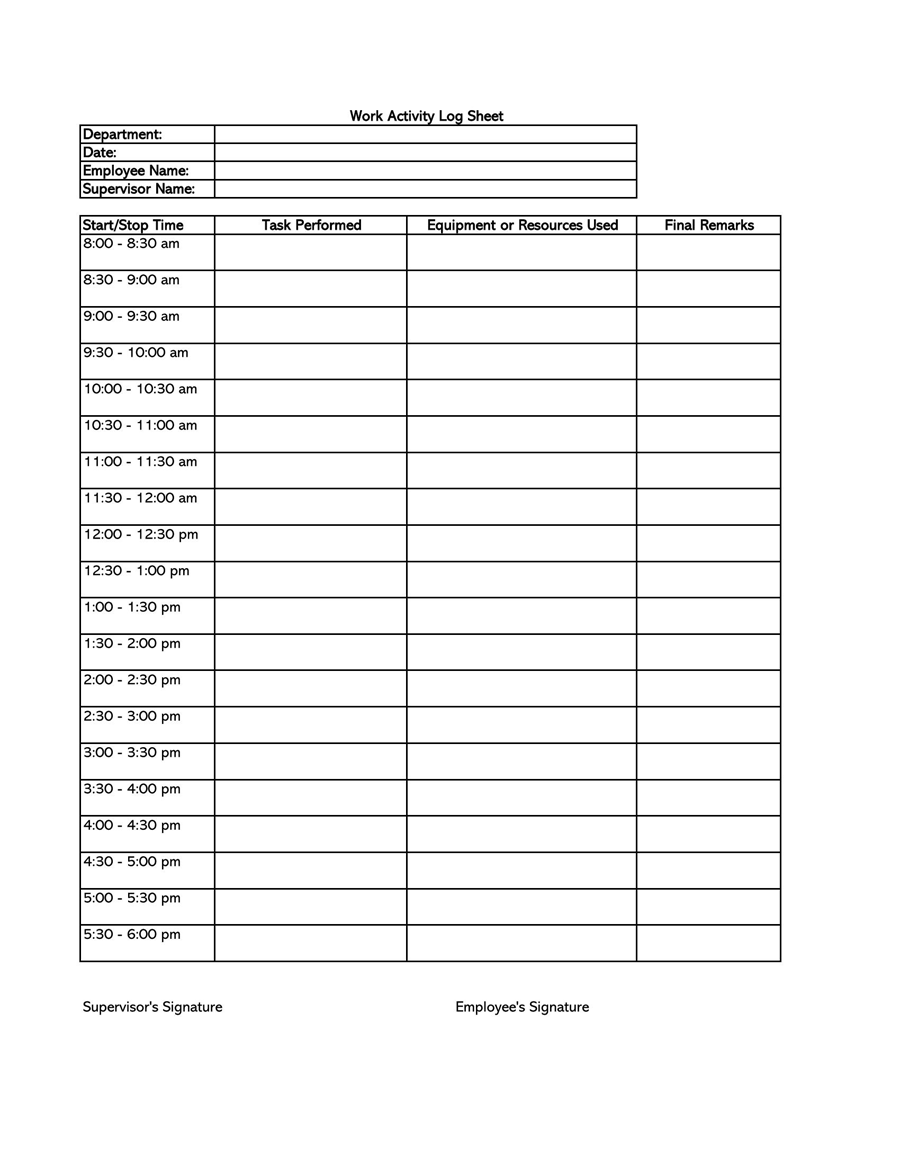
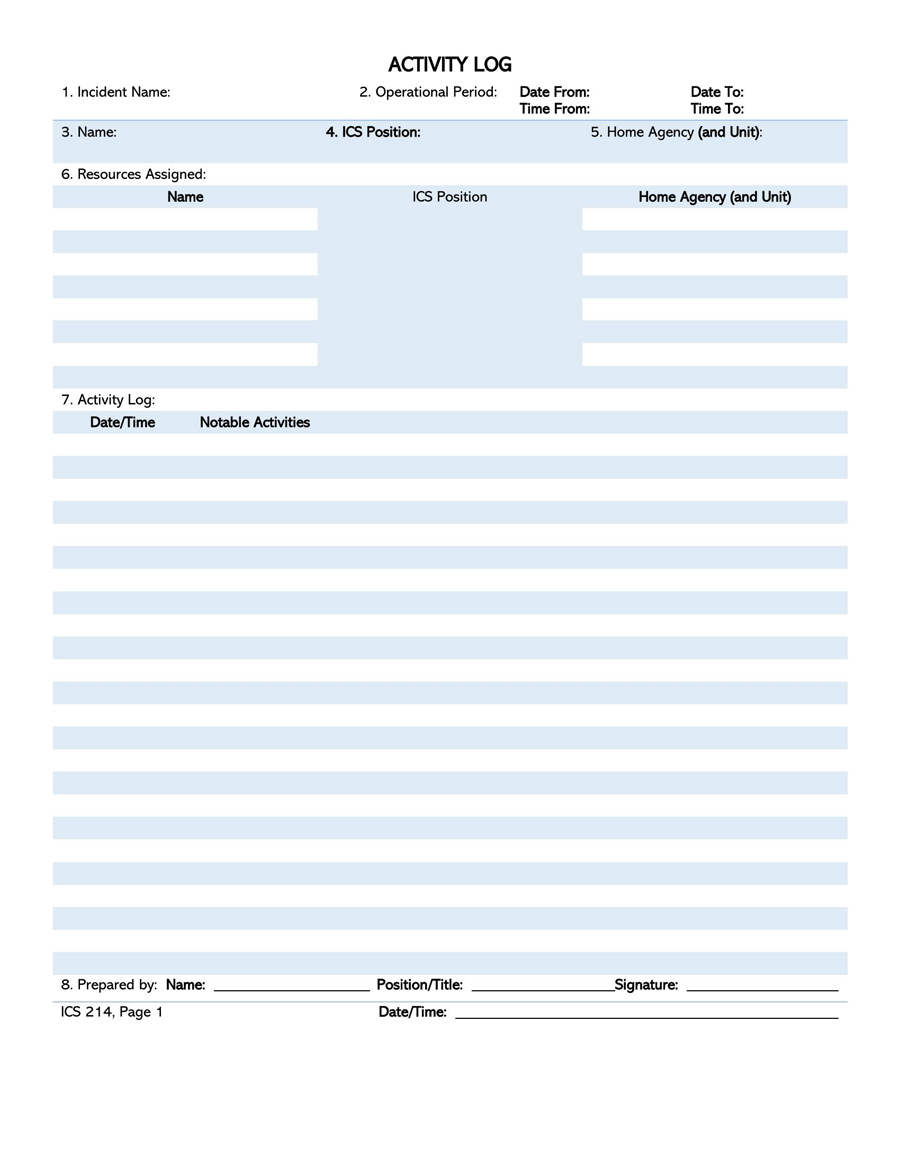
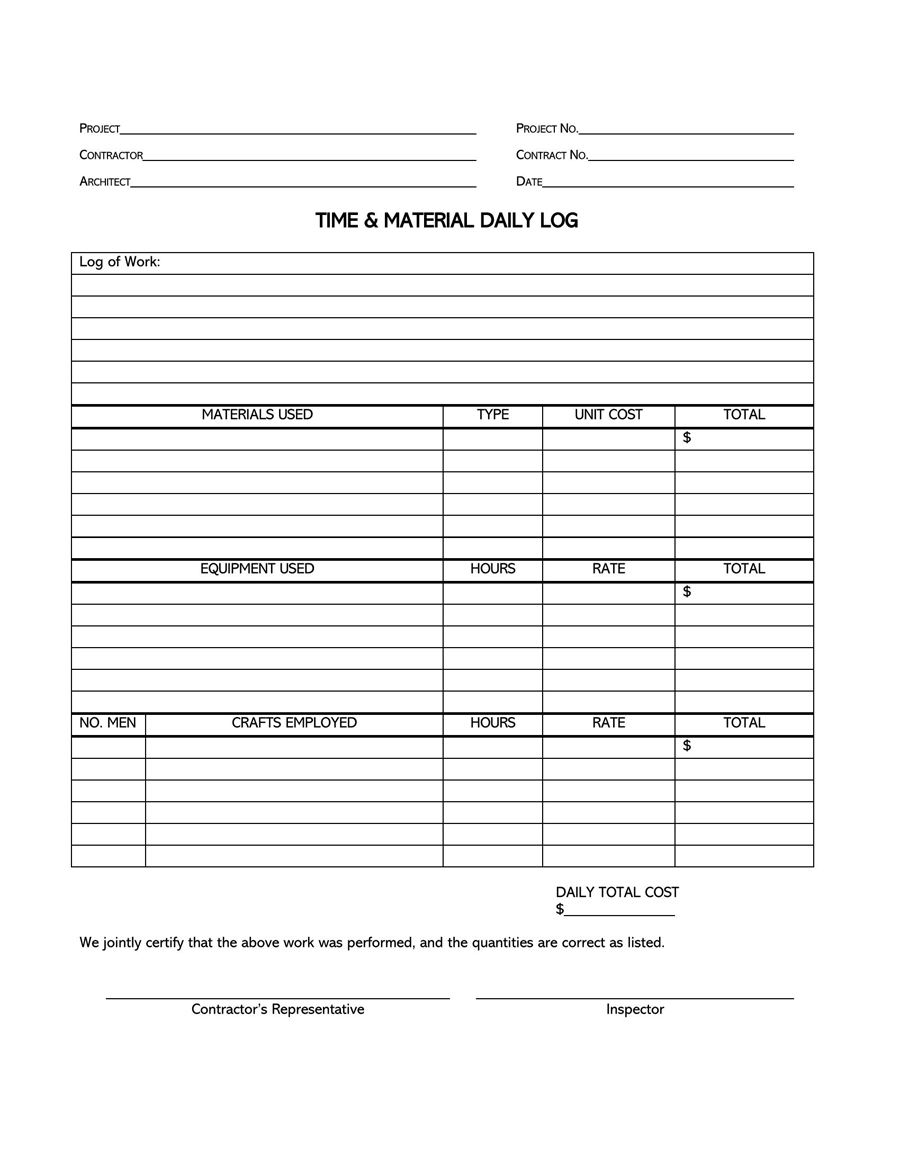
An employer or project manager
Employers and project managers are also popular users of daily activity logs. This is because time management and organization are crucial aspects of running a business or completing a project. Employers and project managers used these logs to track how much time is spent on particular tasks during working hours.
How it will benefit
Activity logs can be used in different scenarios in the workplace. The log can provide tremendous benefits to employers and project managers.
Some of the notable benefits are listed below.
- It helps boost productivity: By recording what you and your employees are doing during official working hours and how much time is being spent on each task, employers and project managers can analyze how well they manage these tasks to ensure everyone achieves their maximum productivity potential. Employers and managers can spot areas where employees can make better use of their time, thus boosting overall productivity at work.
- Saves from wasting time on low-value tasks: A daily activity log is a good way of rooting out time-wasting activities from an employee’s or project manager’s schedule. This is done by identifying and recording low-value tasks and the time spent on these tasks. Time allocated to these tasks can be reduced to allow employees to focus on other, more important tasks.
- Tracks the progress of employees/team: Most projects will ordinarily be broken down into several measurable tasks for monitoring purposes. By having employees or team members record the daily tasks they undertake, an employer or project manager is able to see how far the employee(s) or teams have reached. Tracking their progress helps identify where employees or teams are lagging and determine ways to correct the delays.
What to include
In order to effectively track your employees’ or team’s activities, the daily activity log must be able to capture useful information.
The following are some of its basic components that both employers and project managers should include:
- Project name: The activity log should have a section to document the name of the associated project being monitored. Employers and project managers will typically be working on more than one project at a time; it is, therefore, best to have a log for every project separately.
- Date/time: A section for recording the start and finish times or dates should be provided. This section is important when analyzing whether deadlines will be met.
- Activity description: Each activity recorded in the log should be described briefly. Mention keywords associated with the activity.
- Total activities: The log should also have a section to list all the activities completed within the monitoring period.
- Activity status: Employers and project managers should also aim to record the activity status of each project documented in the activity log.
- Activity priority: The activity log should indicate the level of priority of each recorded activity. Some activities will be more important than others, and directing more time to priority activities is essential for ensuring projects are completed on time.
- Closing: A good activity log can also include a remarks section where the user notes down any essential observation, comment or statement. The log can have a closing for each activity on the log and a general closing for the entire log.
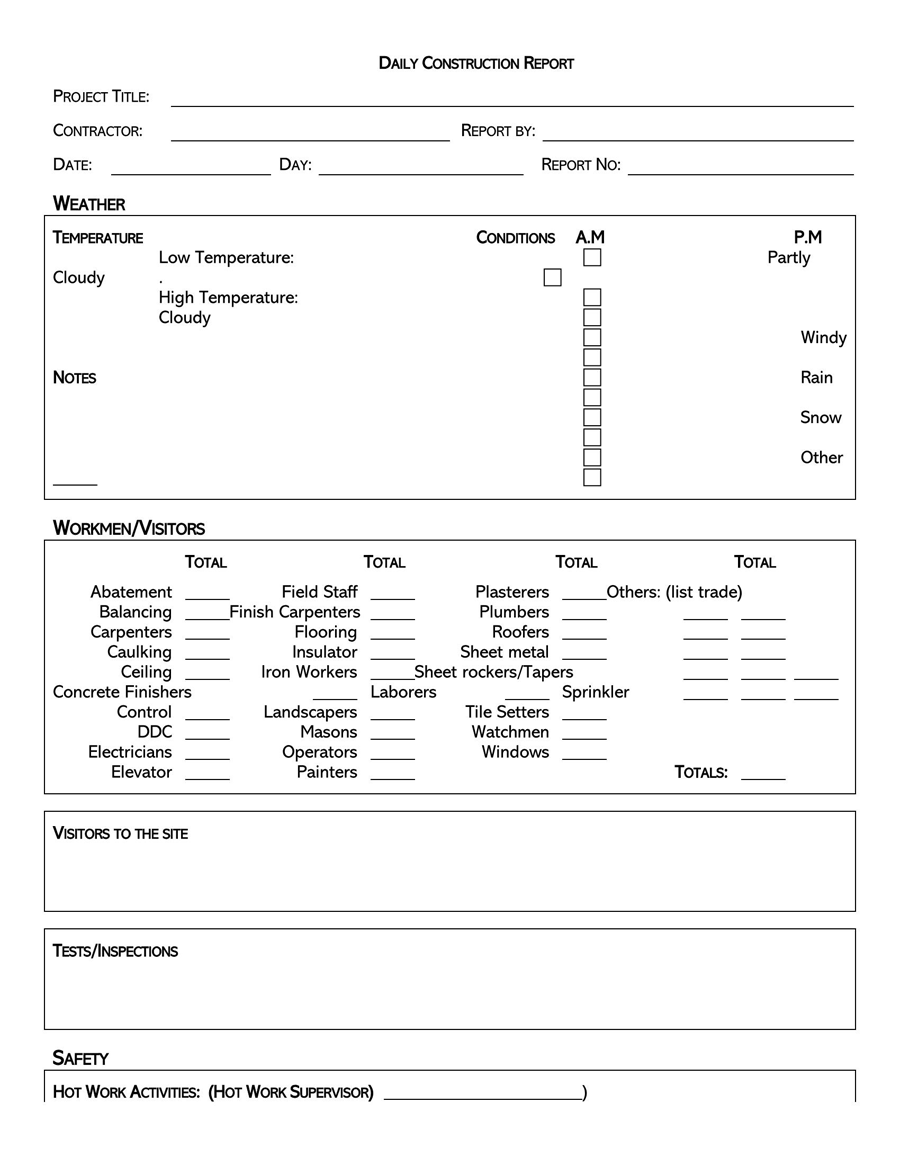
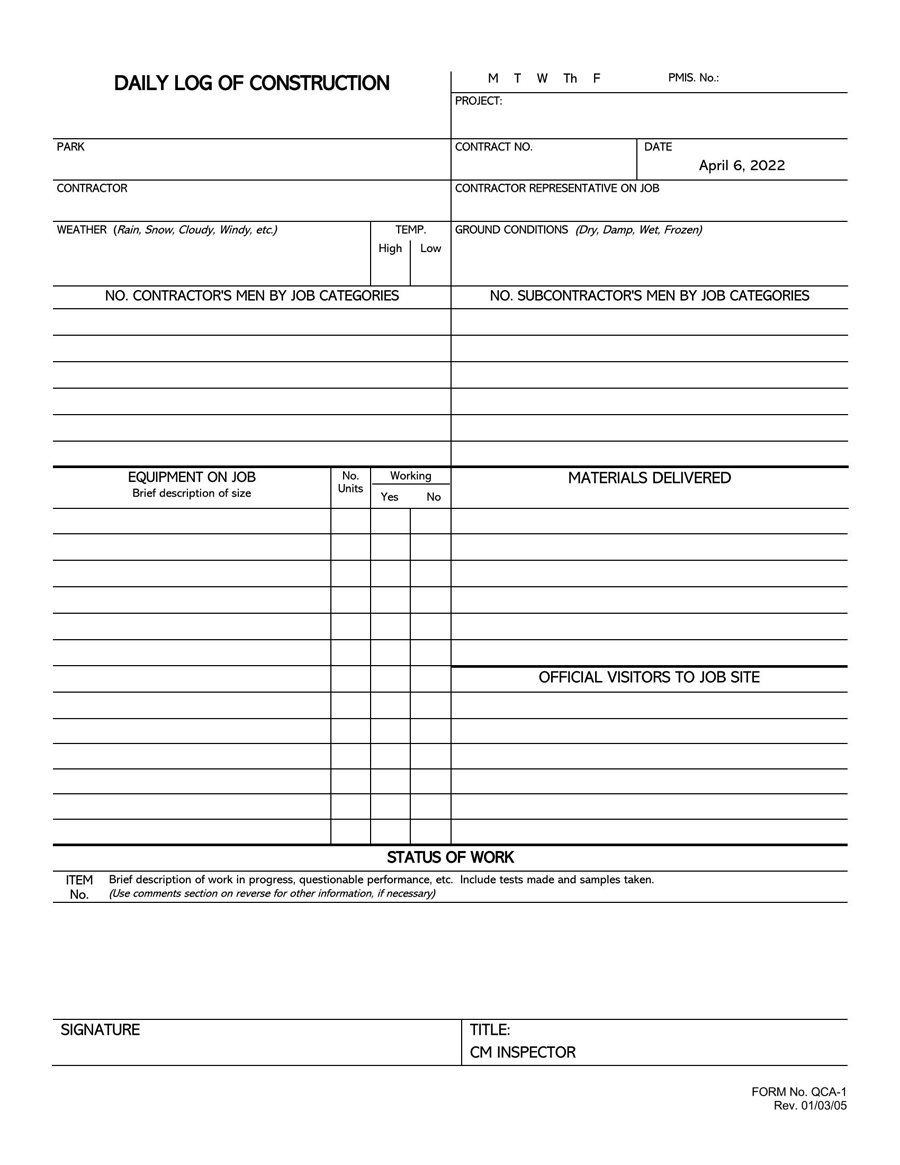
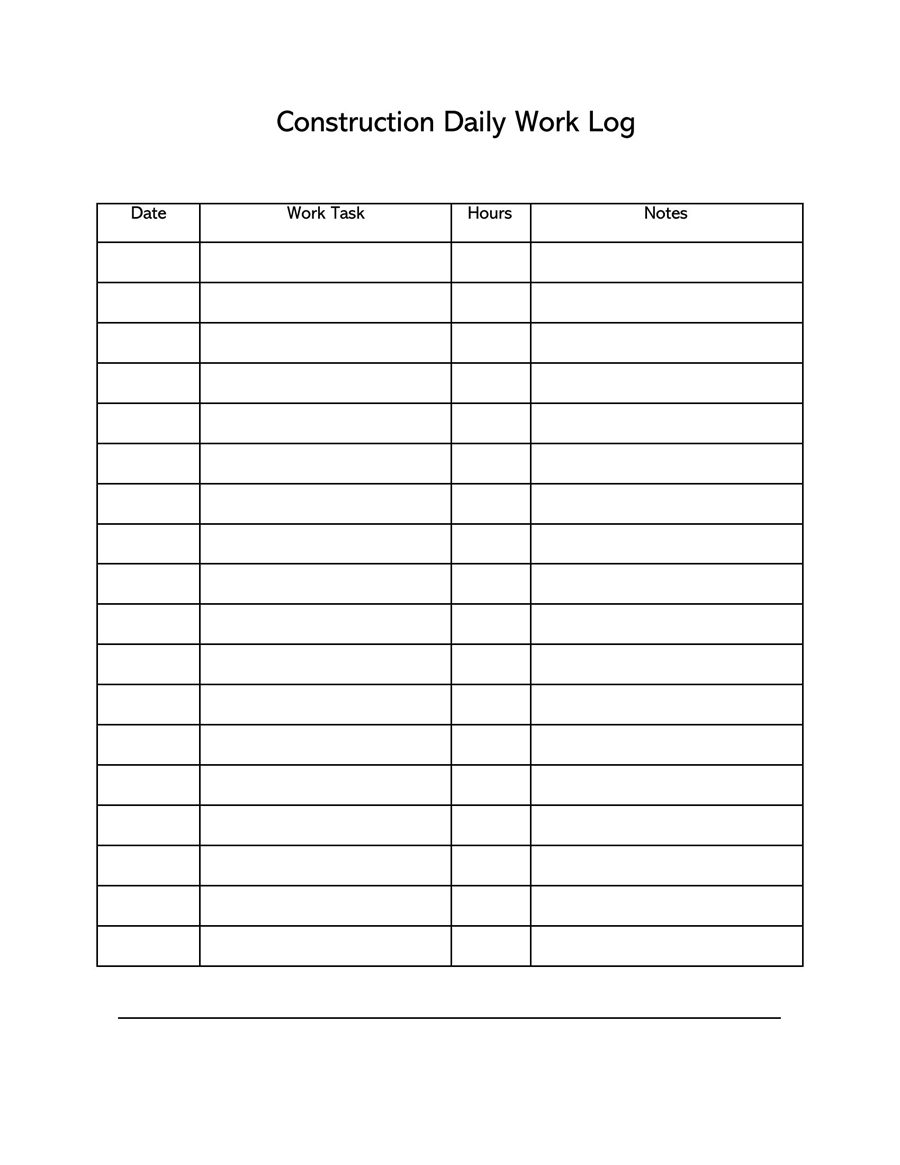
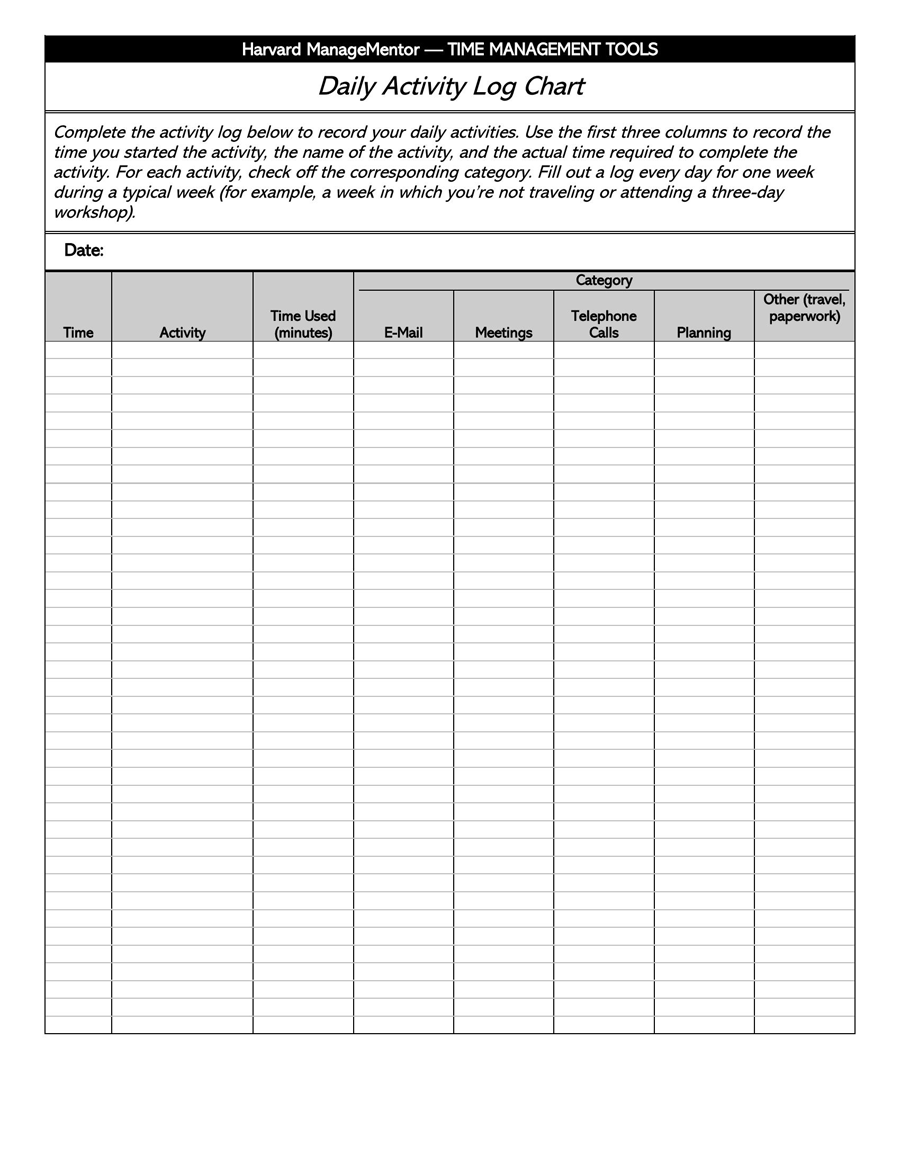
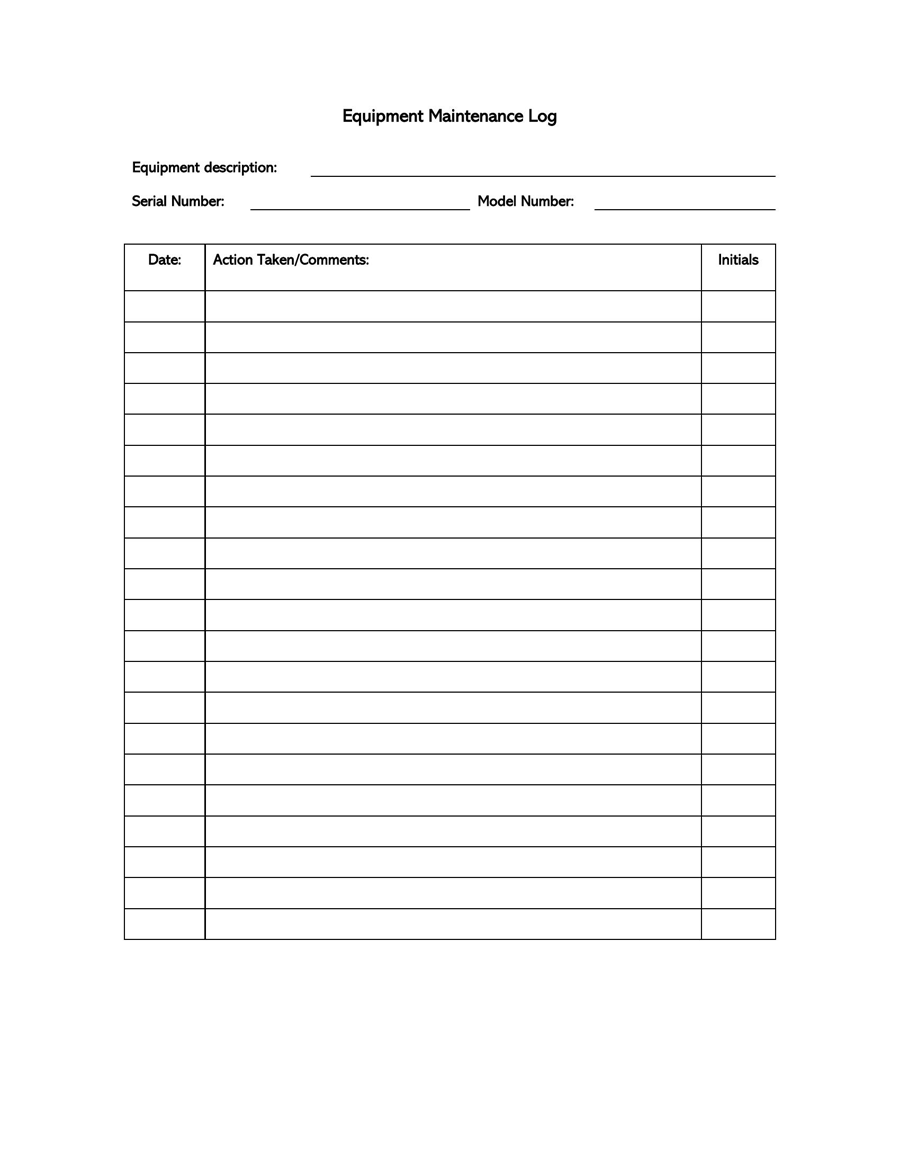
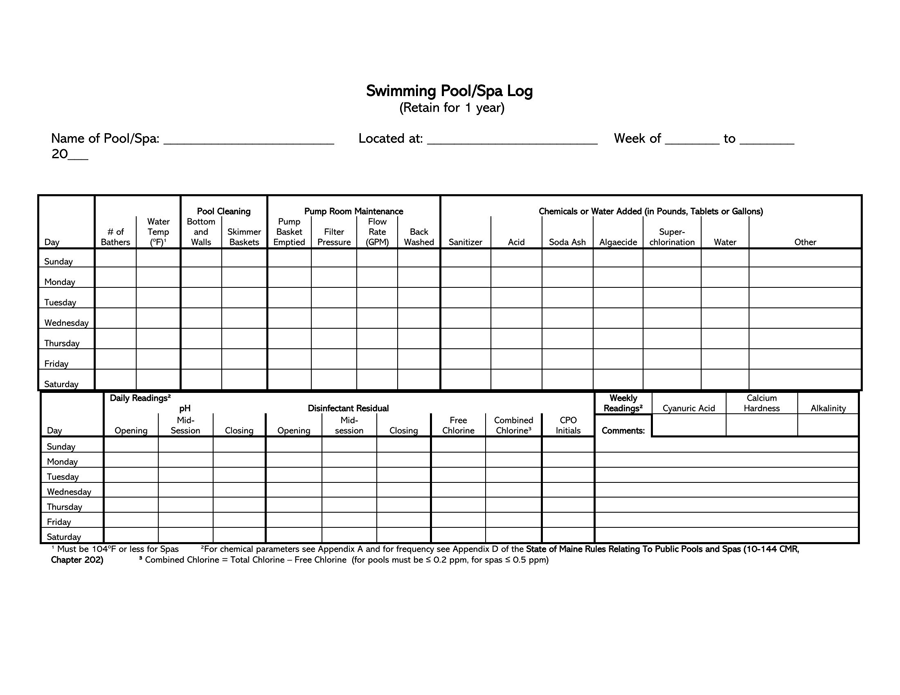
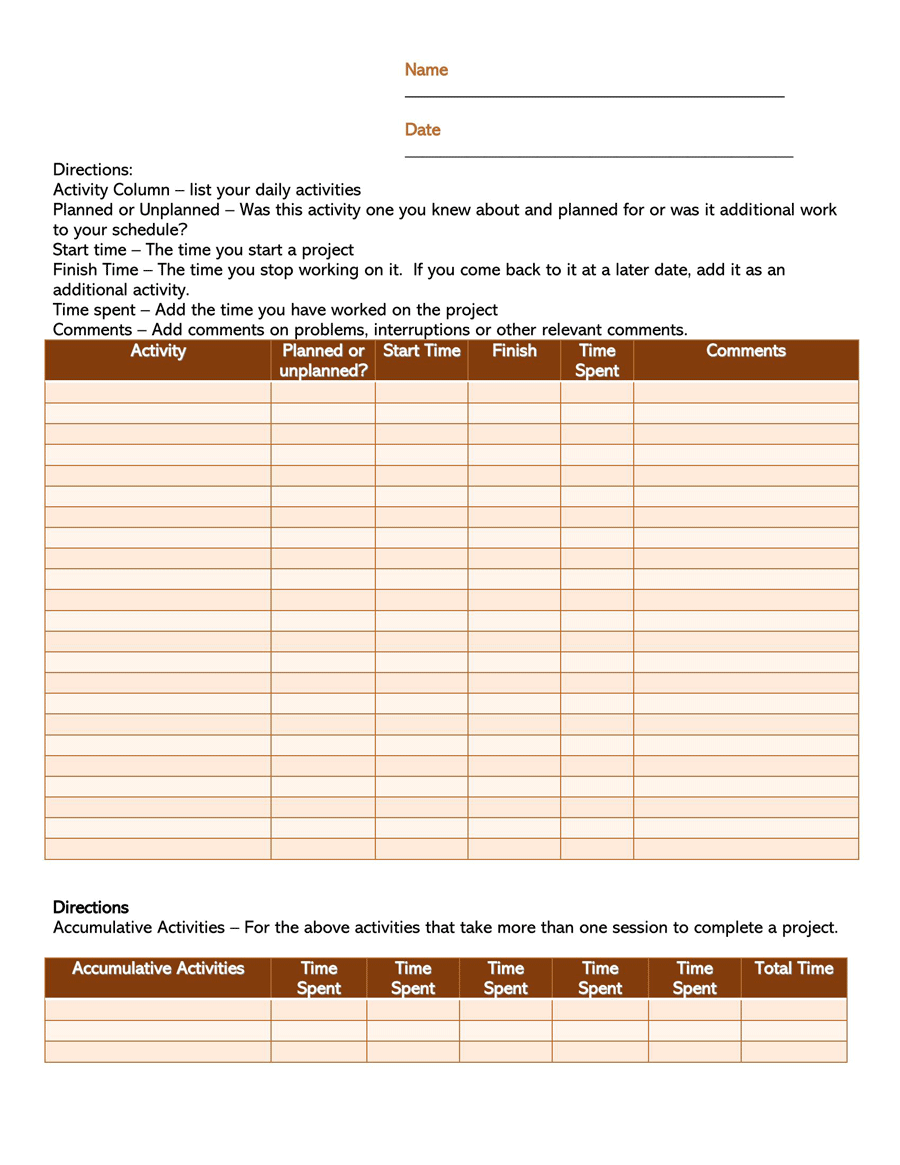
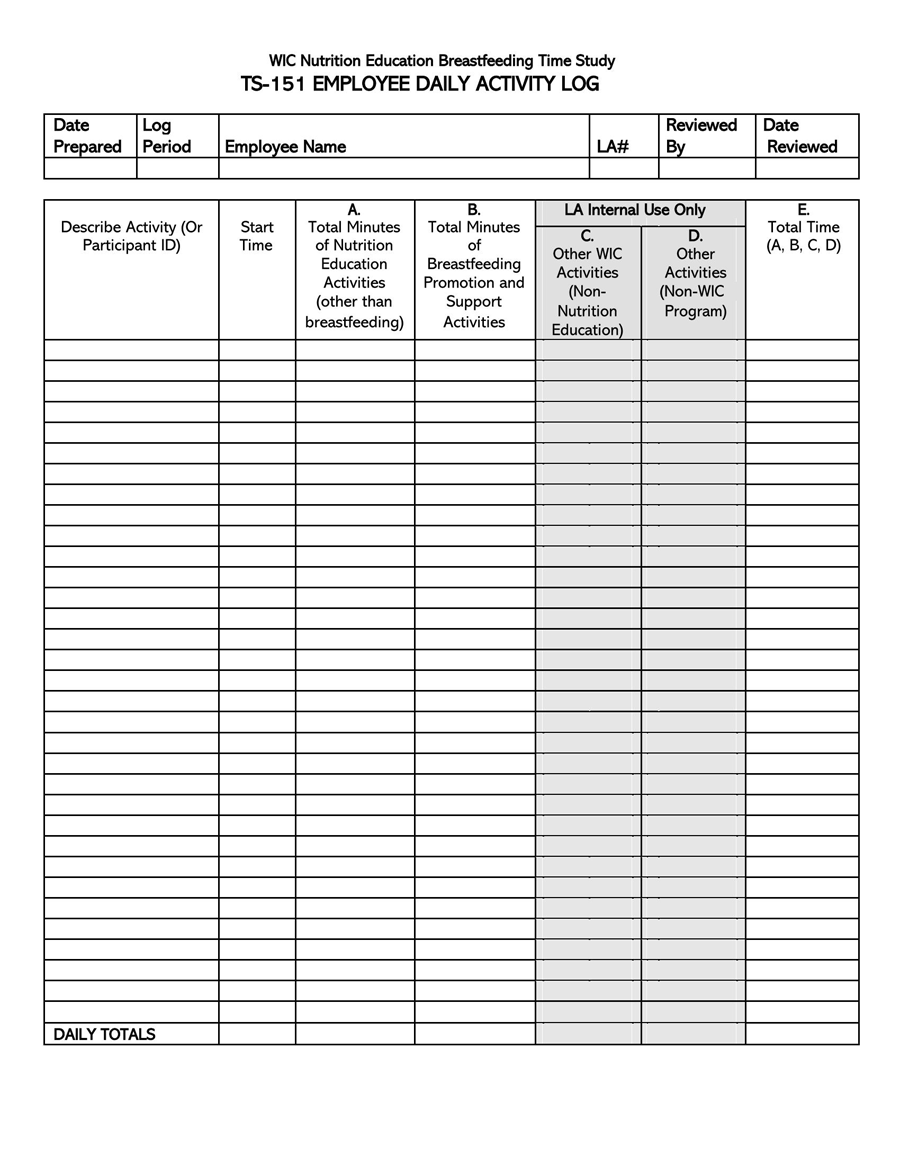
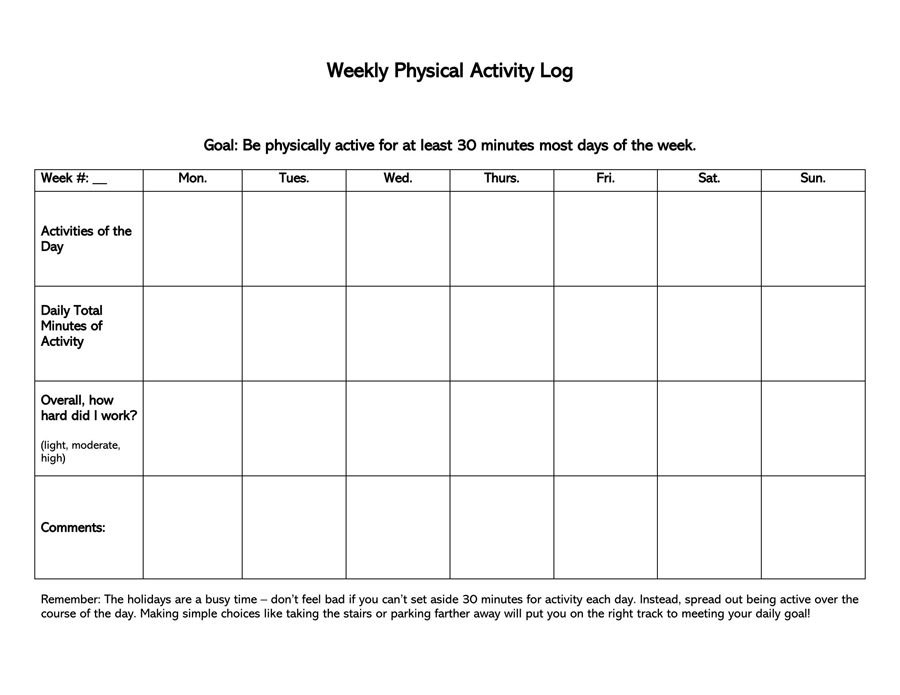
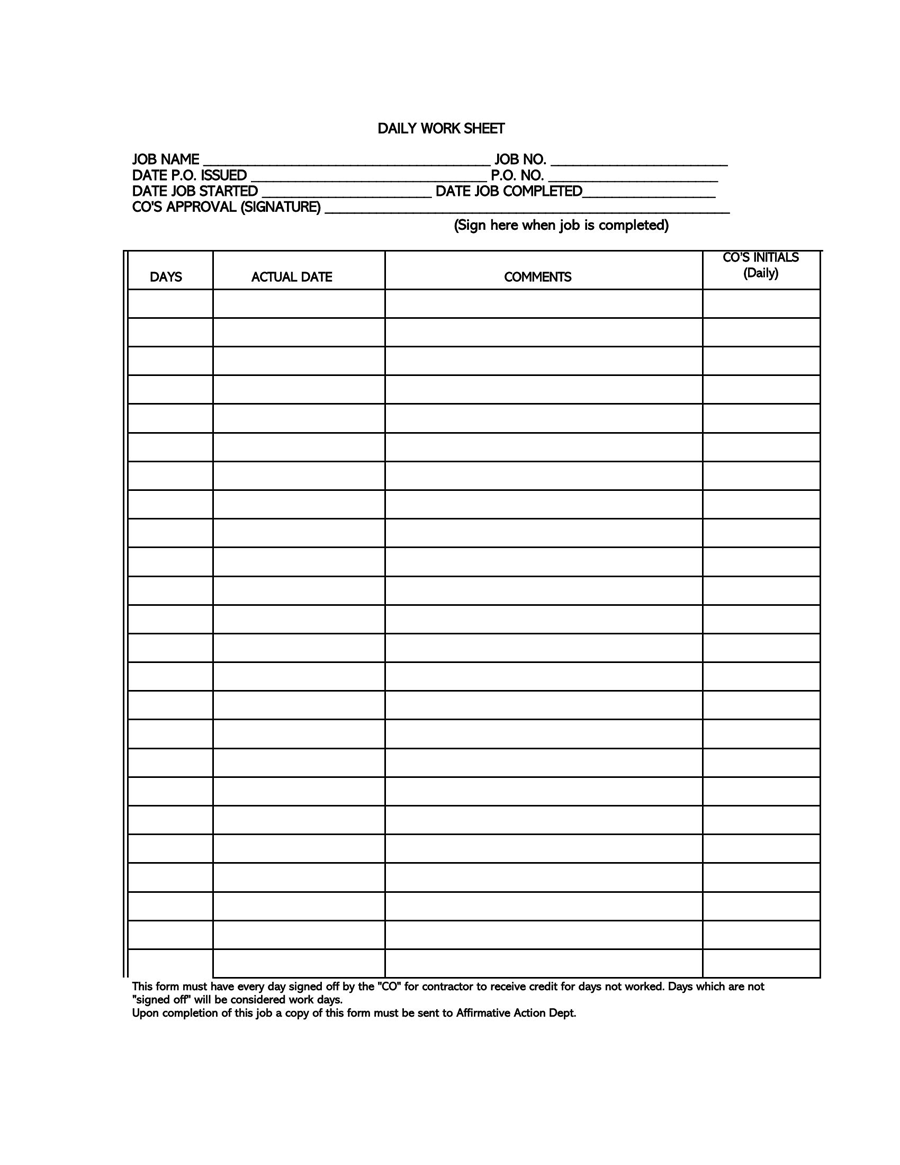
Frequently Asked Questions
Unlike an activity log, which records the activities undertaken within a specified period, such as a day or week, a timesheet is a document meant to record the number of hours worked on various tasks. A timesheet is often used for payroll, project accounting, and client billing processes, while an activity log is used for time management.
The accessibility of an activity log is dependent on where it is applied. If used for self-assessment, ordinarily, only the user will have access to it. If it is being used by an employer or project manager, it can be accessible to various people such as team leaders, supervisors, HR, employees, etc.











